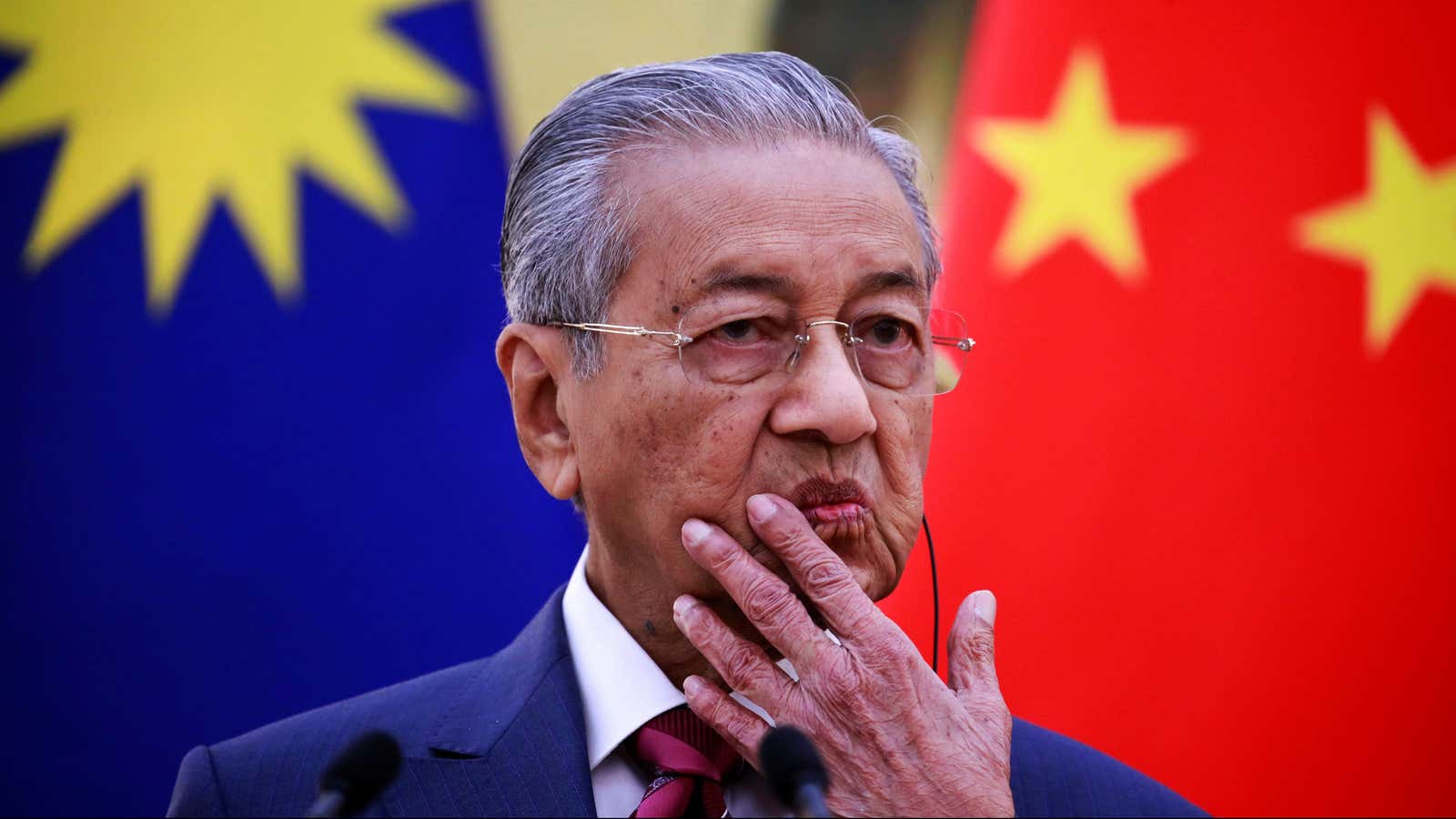In a week when autocratic governments seemed more emboldened than ever to flex their power, and Brazil, a major Latin American democracy, looks set to vote a misogynistic populist into power, Malaysia seems to be bucking that trend.
The Southeast Asian country—which earlier this year ousted its corruption-embroiled prime minister to vote a 93-year-old former strongman back into power—took a series of steps this week suggesting it’s keen to shed some of its less-than-democratic vestiges.
Mahathir Mohamad’s government said yesterday (Oct. 11) that it plans to abolish both the Sedition Act and the death penalty by the end of the year.
The colonial-era Sedition Act had been widely used by previous governments—Mahathir himself jailed many critics—to stifle dissent. In 2016, prime minister Najib Razak, who is currently being investigated for a number of charges including bribery and abuse of power relating to his role in the mismanagement of state investment fund 1MDB, arrested a political cartoonist under the Sedition Act. The cartoonist, Zunar, was one of dozens of people who had been arrested under the law after news of the alleged embezzlement of the 1MDB fund broke in 2015.
Malaysia also intends to impose a moratorium on all prisoners currently on death row—including the two women currently on trial for the murder of Kim Jong Nam, the half-brother of North Korean leader Kim Jong Un, in Kuala Lumpur’s airport in 2017.
Almost all other Southeast Asian countries, except Cambodia and the Philippines, continue to have capital punishment. The Philippines government under president Rodrigo Duterte, however, is currently trying to reinstate the death penalty.
That wasn’t all. As China this week stepped up its repression of its Muslim Uyghur population in the Xinjiang region by launching an anti-halal campaign, Malaysia took the unusually defiant move to release 11 Uyghur detainees and sent them to Turkey. Last week, Kazakhstan denied asylum to an ethnic-Kazakh Chinese national who escaped from Xinjiang and exposed what was happening inside the camps where millions of Muslims are being held. Her lawyer said the decision reflected China’s strong leverage over Kazakhstan. Malaysia’s decision is all the more striking as it’s the latest in a pattern of actions challenging Beijing’s power, including the cancellation of two large Chinese-funded infrastructure projects.
Malaysia’s recent record hasn’t been perfect, of course. In the majority-Muslim country last month, two women were publicly caned in the conservative state of Terengganu. Malaysian law allows states to apply Islamic law, but Mahathir called the canings un-Islamic.
